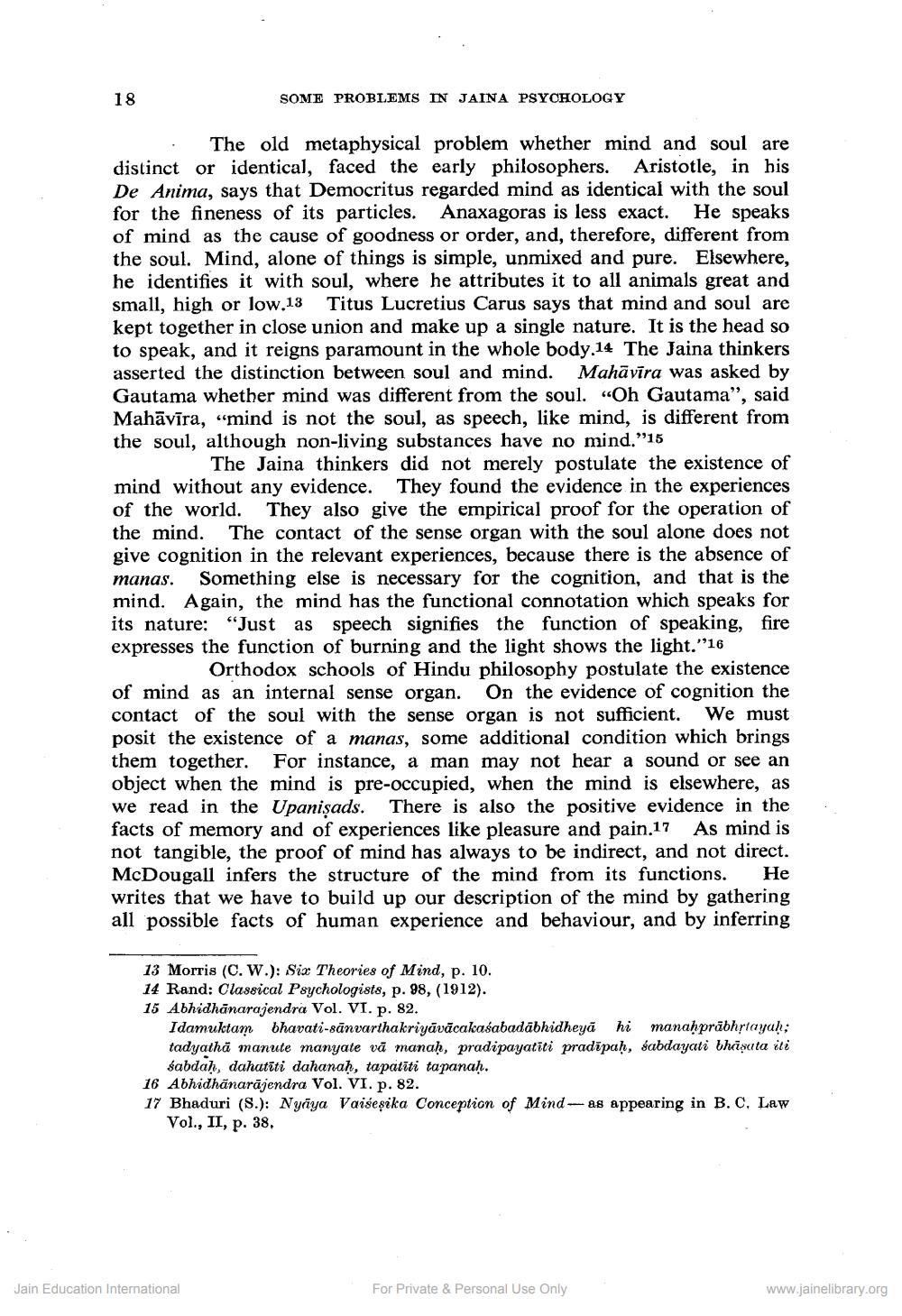________________
18
SOME PROBLEMS IN JAINA PSYCHOLOGY
. The old metaphysical problem whether mind and soul are distinct or identical, faced the early philosophers. Aristotle, in his De Anima, says that Democritus regarded mind as identical with the soul for the fineness of its particles. Anaxagoras is less exact. He speaks of mind as the cause of goodness or order, and, therefore, different from the soul. Mind, alone of things is simple, unmixed and pure. Elsewhere, he identifies it with soul, where he attributes it to all animals great and small, high or low.13 Titus Lucretius Carus says that mind and soul are kept together in close union and make up a single nature. It is the head so to speak, and it reigns paramount in the whole body, 14 The Jaina thinkers asserted the distinction between soul and mind. Mahāvīra was asked by Gautama whether mind was different from the soul. “Oh Gautama", said Mahāvīra, “mind is not the soul, as speech, like mind, is different from the soul, although non-living substances have no mind."15
The Jaina thinkers did not merely postulate the existence of mind without any evidence. They found the evidence in the experiences of the world. They also give the empirical proof for the operation of the mind. The contact of the sense organ with the soul alone does not give cognition in the relevant experiences, because there is the absence of manas. Something else is necessary for the cognition, and that is the mind. Again, the mind has the functional connotation which speaks for its nature: "Just as speech signifies the function of speaking, fire expresses the function of burning and the light shows the light."'16
Orthodox schools of Hindu philosophy postulate the existence of mind as an internal sense organ. On the evidence of cognition the contact of the soul with the sense organ is not sufficient. We must posit the existence of a manas, some additional condition which brings them together. For instance, a man may not hear a sound or see an object when the mind is pre-occupied, when the mind is elsewhere, as we read in the Upanişads. There is also the positive evidence in the facts of memory and of experiences like pleasure and pain.17 As mind is not tangible, the proof of mind has always to be indirect, and not direct. McDougall infers the structure of the mind from its functions. He writes that we have to build up our description of the mind by gathering all possible facts of human experience and behaviour, and by inferring
13 Morris (C. W.): Six Theories of Mind, p. 10. 14 Rand: Classical Psychologists, p. 98, (1912). 15 Abhidhānarajendra Vol. VI. p. 82.
Idamuktam bhavati-sānvarthakriyāvācakasabadabhidheyā hi manah präbhrlayah: tadyathā manute manyate vã manaḥ, pradipayatiti pradipah, sabdayati bhrişata iti
sabdah, dahatīti dahanah, tapatiti tapanah. 16 Abhidhānarajendra Vol. VI. p. 82. 17 Bhaduri (S.): Nyāya Vaiseșika Conception of Mind-- as appearing in B. C, Law
Vol., II, p. 38.
Jain Education International
For Private & Personal Use Only
www.jainelibrary.org




